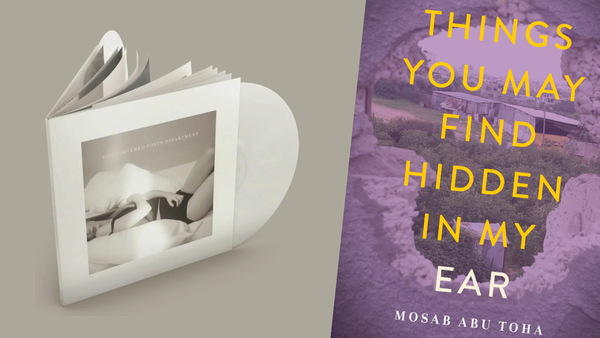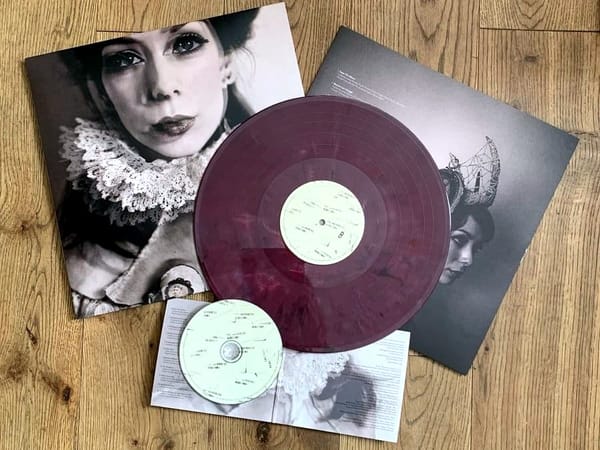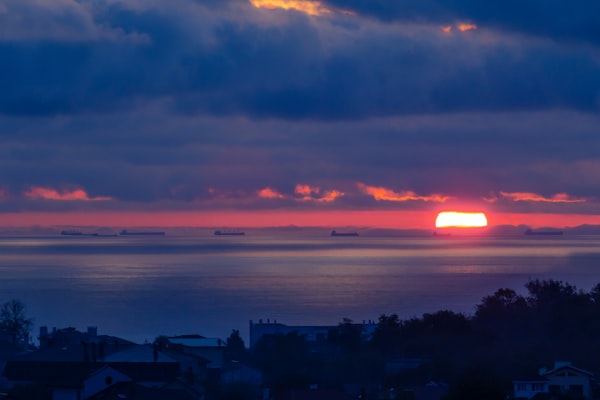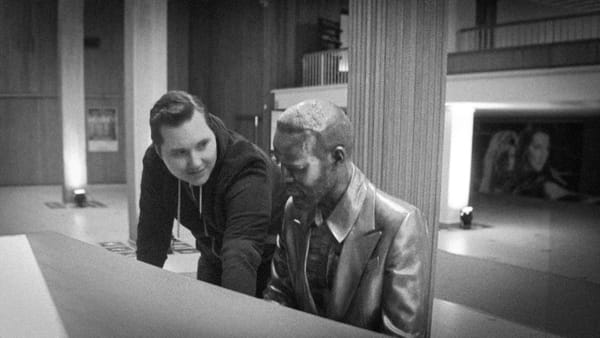Is Music's Future Overcooked?
Did piracy inspire the current boom in music, and where is music's Anthony Bourdain?
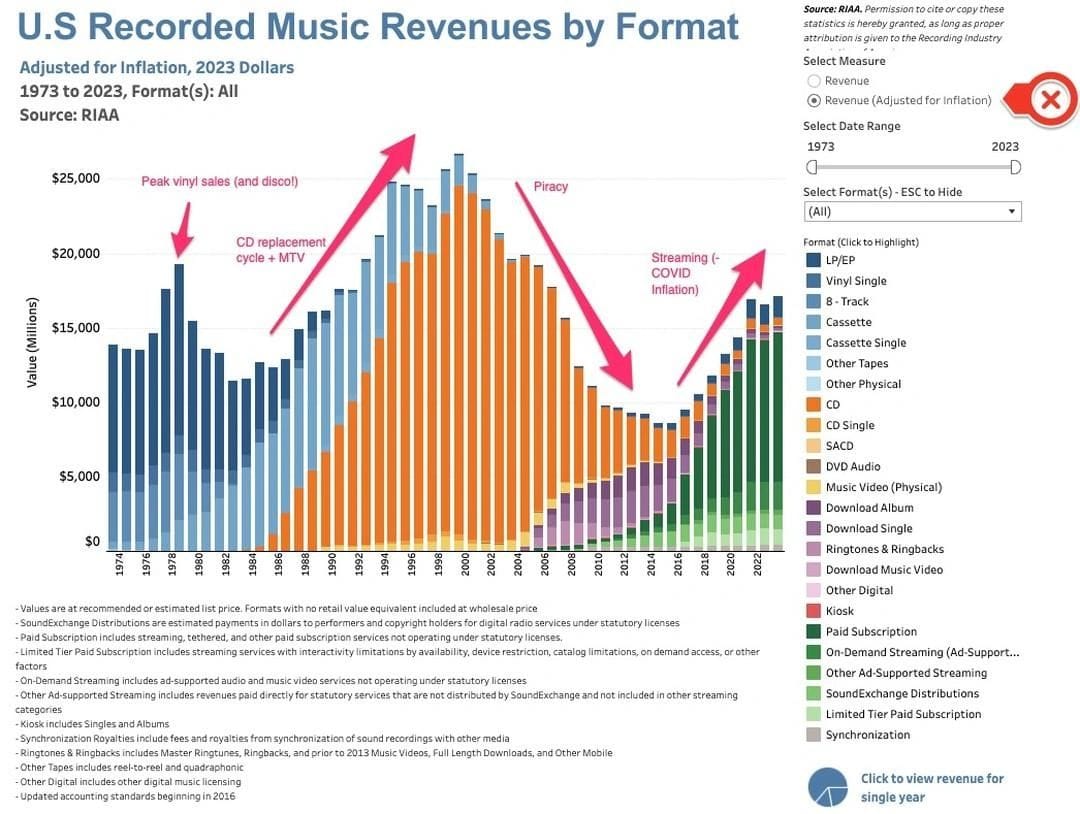
Editor's note: Before we begin, this hopefully thought-provoking but brief ramble was inspired by the latest RIAA data above. It just sort of fell out of me as I was making notes.
This was instead of finishing four other essays I'm working on (sorry for the gap, I wrote a bit about my "creator guilt" here), alongside editing a brilliant guest essay, and this month's music recommendations email. Some of which may land in your inbox over the long Easter weekend, in case you fancy dipping in for some music recommendations.
If you could turn back time... do you believe there would be the same demand for music now if there wasn't a music piracy explosion at the turn of the century?
I was such a music pirate. So much so that I should have had an eye-patch and a peg-leg. It was a thrill to be in the centre of the storm that capsized the music industry establishment (ok, no more pirate ship metaphors!).
In the years before I moved to London, I worked in a record shop. This was from 1998-2000, in the bin-end of Britpop, when "Brit-rawk" wasn't really a thing, despite how much we tried to will on Idlewild to be the new messiahs...
I saw change happen in real-time over those years. Working behind the counter of a record store in a small town, you find out how and why some people are looking for records. Piracy would come up a lot, especially when people had heard one song with the wrong filename, and really wanted to find the album it was on...
Serving customers the latest albums and CD singles was a dream job and something I did to fund my music habit, alongside studying for my A-levels and promoting gigs in the local venue (and my third, less glam job to help pay for festival tickets was working in a cafe serving future olympians)
It was around this time I was downloading music from Napster, KaZaa, Limewire and AudioGalaxy (one of the most under-rated music browsing experiences that I need to write about one day).
However, internet connections were so slow that I could only get 1-3 songs to download overnight on my dial-up modem and the audio quality was often terrible. Waiting and waiting and waiting some more, gave me plenty of time to chat online and consume a tonne of music media to pick what to download next. This would range from things I'd seen on MTV2, heard on Radio 1's Evening Session or read about in Melody Maker, Select, Vox, Kerrang, Rock Sound, etc.
I was on £3-3.50 an hour at the time and from a working class family, so my music consumption was limited but piracy let me in on the world of music, just like YouTube, SoundCloud and streaming services do for "The Kidz" today.
The music I downloaded that wasn't random Weezer b-sides was often far more adventurous than the average 16 year old at the time. It might not seem it by today's standards but I'd gone from listening to Blur and Oasis to downloading MC5, Rakim, Planes Mistaken for Stars, Pitchshifter, Patti Smith, Sonic Youth, The Slits, Le Tigre, pretty much anything on Kill Rock Stars, Glassjaw, Arab Strap, Broadcast, Kid606, Deftones, Tom Waits, etc. In doing so, it sparked my desire, ability and crucially the impetus to explore deeper, finding lesser known acts.
Browsing someone's collection on peer-to-peer services or IMing a fellow obsessive on Napster or AOL messenger was huge for my education and excitement. As were messageboards, which is why our DiS community has always meant so much to me.
After all this research, then came the time to take a risk on a £12 to 15.99 album (or 3 for £20 if I was lucky!). There was nothin quick about this process, least of all because some records were imported which required a 3 week wait (I think I'm still waiting for GreenDay's debut album to arrive!), and if it didn't click at first, it either got taken back sharpish to exchange for something else or I'd find myself really living with the music until I was desperate to see the band live. This forged my obsession for music.
[It also probably explains why I still have boxes of CDs in a cupboard that feel too important to throw away, despite not having a CD player for many years!]
I remember speaking to friends and customers at the time who were also becoming, well, "radicalised" music fans. We were either into specific scenes (for a few months) or going deep into artist catalogues (including my Sociology teacher who asked me to help him find some rare Dylan tracks) or just becoming all-consuming generalists of music's past, present and future.
As the tech matured, upgrading and keeping up with trends meant that trying to see acts before they were huge was the focus for many of us. Watching those early 2000s acts like Muse, At the Drive-in, Yeah Yeah Yeahs, Bloc Party, Foals, Kano, Laura Marling and Elbow go from playing grassroots venues to academy venues and sometimes arenas within two albums was such a thrill (it still happens but nowhere near as much as it did in those heady MySpace days). Being able to see an act in a small room on a wet Wednesday often felt like watching a rocket launch. And that's before you consider how thrilling it was to see the sonic assault of acts like Biffy Clyro opening for Cooper Temple Clause. But I digress...
The drum beats out of time
Looking at this RIAA graphic of music consumption (see above), my brain feels like a glitching CD. Partly nostalgic for the giddy kid I used to be but also sad for thinking how less of a music devourer I'd likely be now. Of course there's some nature to my songs-stuck-on-repeat inner world, but the technology and media ecosystem really nurtured the deeper exploration that was sparked by burrowing my head in my dad's Motown collection.
I keep coming back to the troubling thought about who I'd be if I was 17 now. Would I be as "radicalised"? Would I only be into Phoebe Bridgers and the coterie of acts that orbit her? Would I find music I'd want to promote gigs by or release on a record label? And what does it mean if we don't have a generation of youngsters doing that and "radicalising" their friends?
We have had two generations who've benefited from that free-pour always-on tap of music in their pocket to inform their taste, which must be amazing for them. What I fear is that in how easy it is to be super-served from the unlimited all-you-can-eat streaming buffet, and get more and more of the same delivered by algorithms or you could give whatever is trending a go (i.e. both cases, this is often the most heavily marketed major label release).
Convenience is a great antidote to the overwhelm but it comes without context or or human hand-holding to take you a little further from where you started or someone to act as a guide you around a lost city where all the signs are in a language you don't quite understand. As self-service machines increasingly replace curiosity, choice feels diminished. Future generations may grow up to be satiated and therefore less adventurous.
We're already seeing this with the lack of crossover acts and a diminishing pool of festival headliners. Not to mention the crisis in grassroots music. And is the industry worried that 5-10 years from now, there won't be the same craving for music? And without that desire, can "value" be sustained?
This is one of the reasons I'm really obsessed with the idea of music appreciation and the need for Anthony Bourdain-like figures who can do for genres and artists, what he did for local cuisines and dishes.
As the Cyndi Lauper classic goes, confusion is nothing new, but much like flood prevention planning, we have to glance at the potential futures. If the audiences now are a blip because of a boom in piracy, and if future generations don't follow this trend, then the ecosystem won't regenerate... and if music industry falls from this precipice, is anyone planning to catch it?

